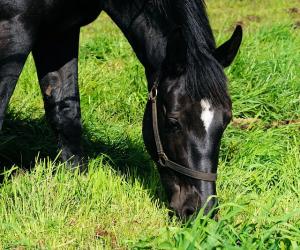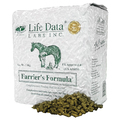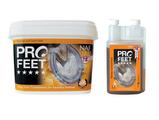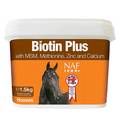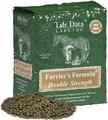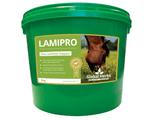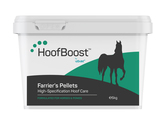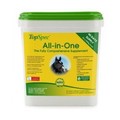As we approach summer and our horses get increased turnout, it is important to do so with caution, especially if your horse is laminitis-prone. For owners whose horses are turned out, it is worth reminding ourselves of the potential threat posed by lush and abundant grass.
Horses that are carrying extra weight should be monitored closely throughout Summer and autumn because new grass could be the tipping point for a laminitic episode. For horses that are prone to laminitis and colic, be particularly cautious about their access to grass and keep turnout time to a minimum. Use electric fences where necessary to partition fields and cordon off areas of particularly good grazing.
 While many horse owners worry about their animals losing weight and condition over winter, horses are naturally adapted for it and can cope well with minor weight loss. This is quickly put back on in spring and summer, so it is key that your horse doesn’t enter the season too heavy next year.
While many horse owners worry about their animals losing weight and condition over winter, horses are naturally adapted for it and can cope well with minor weight loss. This is quickly put back on in spring and summer, so it is key that your horse doesn’t enter the season too heavy next year.
To avoid the threat of laminitis (whether your horse is susceptible or not), follow these management, exercise and feeding measures and contact us if you have any questions:
- Horses get fat on grass, especially if they are in light work, are resting or retired. Forget the ‘1 horse per acre’ rule for now and try to graze 3-4 horses on the land. Horses don’t need as much grass to maintain weight as you might think, so watch how much they are consuming. Mow the paddock if you can.
- Consider buying your horse a muzzle. Rather than stabling your horse to restrict its grazing, turn it out with a muzzle. This means your horse still gets exercised, whilst limiting how much grass it is able to consume. For overweight horses, muzzles can be a very useful aid.
- Horses use roughly 80% of their feed energy staying warm. If a horse is rugged and insulated, this redundant energy turns to fat. Providing the weather is nice, leave the rug off or use a much lighter one.
- Increase the amount of exercise your horse is getting. A brisk walk burns more calories than a trot or canter so don’t worry about working your horse too strenuously. If practical, place water buckets at the opposite end of the field to the gate to encourage your horse to walk further.
- If your horse is overweight, seek dietary advice from your vet or a feed company. Restrict grass –calorie intake and hard feed as much as possible, although be wary about restricting bulk. Horses need to consume a certain weight of food every day (a min of 2% of their bodyweight and less for overweight horses under veterinary supervision) in order to prevent gastric ulcers and other digestive upsets, as well as dental problems and detrimental behaviours. Reducing calories is fine but keep bulk up in the form of hay (soaked for 12 hrs to remove calories), chaff and high-fibre bucket feed.
- Weigh out feed if possible, so you are never tempted to add a bit more. If you are restricting grass intake, make sure the bucket feed is low-calorie but high-fibre and balanced. There should be no shortfall of vitamins, minerals or antioxidants. A feed balancer can provide all of this; contact us for more information ([email protected])
Check out our other post, 'The Threat of Laminitis' for more comprehensive info on the symptoms and causes of this severe and debilitating condition. If you have any personal advice you would like to share, please comment below :) Most importantly, think ahead this autumn and have a grass management plan in place. It really could make all the difference.
Written by: Hannah
